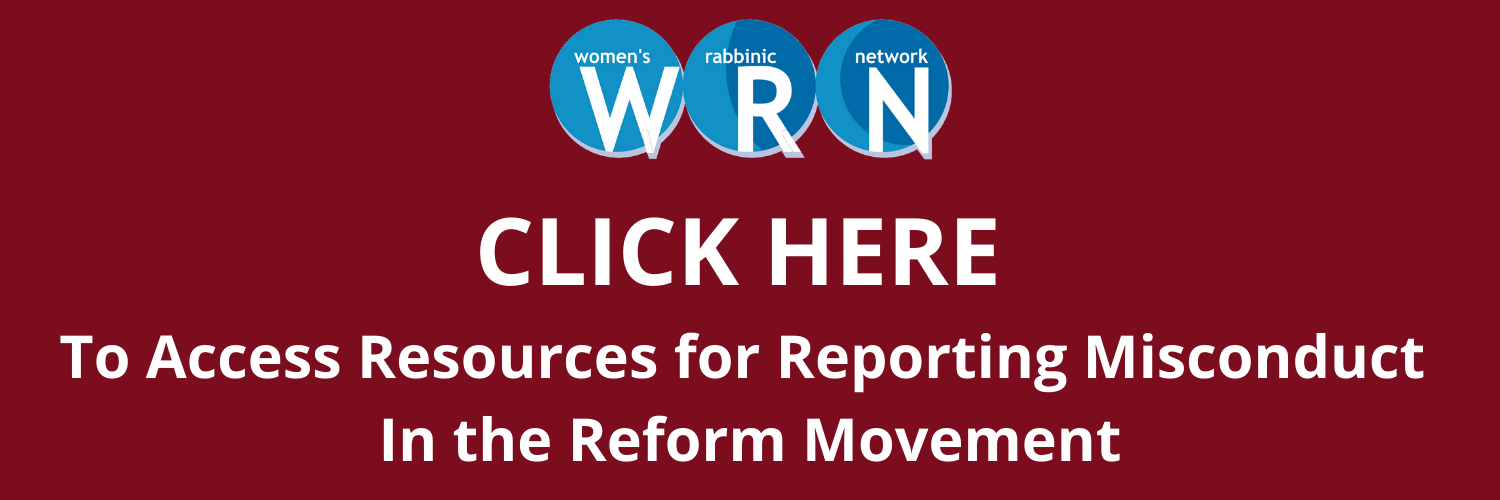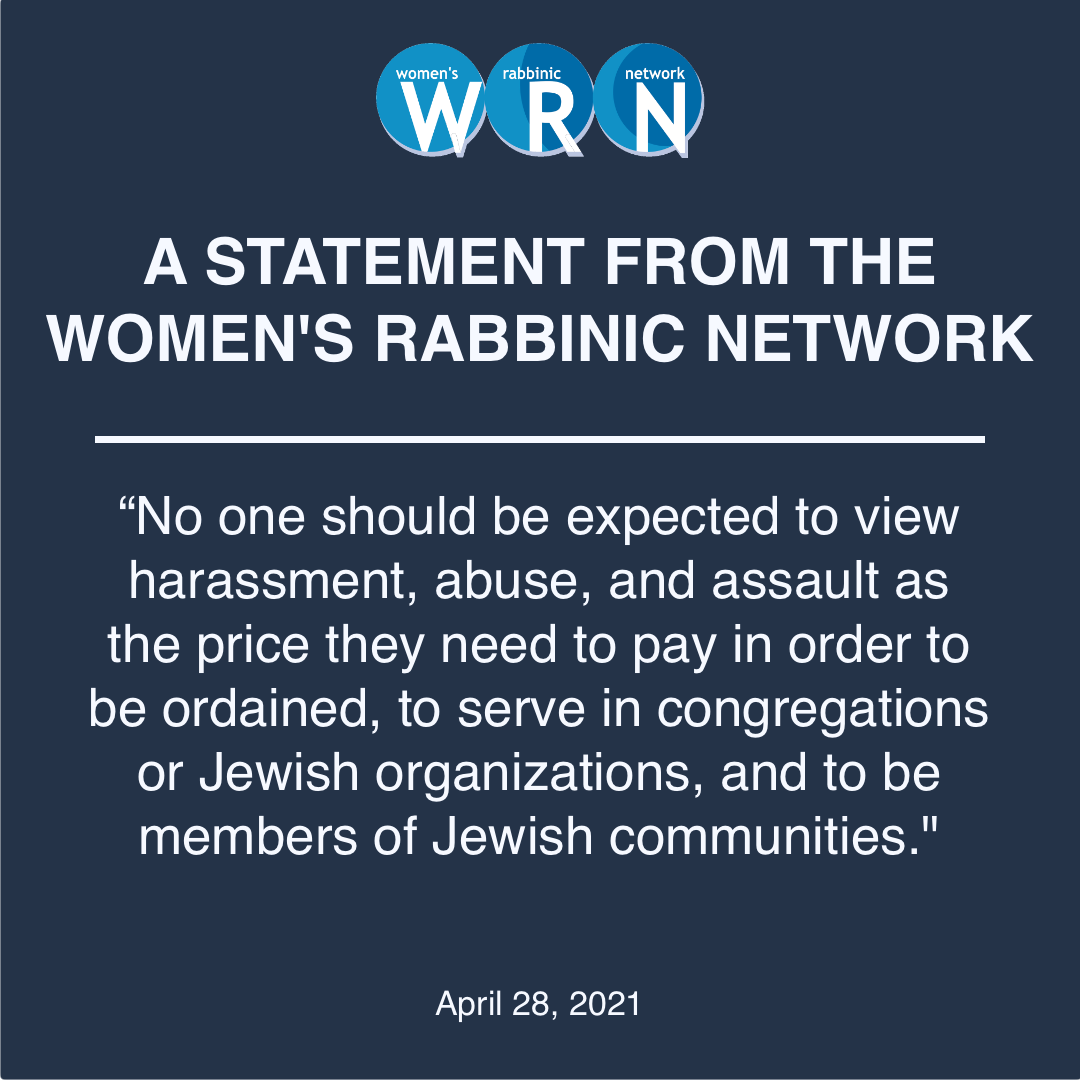|
| "May you feel supported as you stand in the storm. May your words soften hearts and effect actions. May you feel that you are in your position exactly at this time for this purpose.…" Click here to view the letter in its entirety. |
|
| We are delighted to report that WRN Executive Director Rabbi Mary Zamore has been selected as a fellow in the next cohort of The Collective, a unique and high-level program that promotes, strengthens, and advances Jewish women’s leadership in the nonprofit world. Each year, ten visionary women are selected to participate in The Collective, which includes participation in a robust two-year curriculum led by noted social activist Ruth Messinger, and grant funding to their organizations. Details about The Collective, including a list of this year’s ten Fellows, are available on the Elluminate website. As members of WRN, we have all been beneficiaries of Mary’s leadership. How powerful to see our friend and teacher recognized in this significant way. The cohort participants were selected after a seven-month competitive process that included more than one hundred applicants, reviewed during an intense decision-making process. Criteria for participation includes candidates’ feminist leadership, connection to Jewish values, and work in four areas: ending poverty; creating an equitable and inclusive Jewish community; promoting women’s equality and leadership; and advocating for gender justice, reproductive rights, and women’s safety. Mazel tov Rabbi Zamore! |
A WRN STATEMENT ON AJU AND THE ZIEGLER SCHOOL OF RABBINIC STUDIES |
| The Women’s Rabbinic Network adds its voice to those who have called on the American Jewish University and its Ziegler School of Rabbinic Studies to publicly release, in its entirety and without emendation, the external report concerning complaints by former students of sexual harassment and discrimination.
Faced with a similar circumstance in recent years, the Union for Reform Judaism, the Central Conference of American Rabbis, and the Hebrew Union-College Jewish Institute of Religion each made the principled decision to publish the full reports they received from external investigators. That process has certainly not been without pain, but it has set those institutions on a path toward healing and reconciliation. AJU has made a different, and indefensible, decision. Rather than release the entire report, AJU’s leadership prepared and distributed its own summary of the report’s key findings. Even that summary was shared only within the school community; it was not released publicly, and it is not available on their website. The AJU summary was silent on how it would hold faculty and administrators accountable for or repair the harm they created. We agree with the Committee on Ethics in Jewish Leadership which said:
|
WRN DECRIES THE WORLD REACTION TO HAMAS SEXUAL VIOLENCE
November 28, 2023
| The Women’s Rabbinic Network, an organization dedicated to gender justice, decries the lack of condemnation and outrage at the Hamas terrorists’ sexual assaults of girls and women in Israel. As we cry out for the release of all Israeli hostages, and an end to the brutality of war and terrorism, we must raise our voices for the victims of rape and assault, reported by eyewitnesses, medical teams, and forensic specialists. We call on every person holding placards, marching in the streets, posting messages, irrespective of how one sees resolution for Israel and Palestine, to call out, loud and clear, that rape and sexual assault is never an act of resistance or war; rather it is an offense against humanity and human decency. We call upon agencies sharing news and opinions to name the discrimination against women and girls’ sexual assault. And we call upon the United Nations to uphold Resolution 1820, adopted in June 2008, that rape as a tactic of war is a crime against humanity. They, and we, must name it and condemn it now and always. |
Moral leadership starts by setting a living example.Published June 28, 2023 | Religionnews.com
By Rabbi Mary Zamore, WRN Executive Director |
(RNS) — For all the years women rabbis have stood on the bimah, as the pulpit in a synagogue is called, we have had to negotiate job searches, contract negotiations and employment matters using customs and structures built explicitly by and for men. Consider the case of an early career rabbi considering a job offer when she found out she was pregnant. The congregation, she discovered, didn’t offer any paid time off. She was left with a terrible choice: Disclose her pregnancy, negotiate for better leave conditions and risk pregnancy discrimination, or say nothing, knowing she wouldn’t have access to any leave? In either case, what about the other hopeful parents working at this congregation? The rabbi’s predicament might have happened anywhere across America’s varied religious landscape, as many faith-based employers are only now reckoning with the reality of women’s lives. Increasingly, however, houses of worship have begun to employ clergy and staff of all genders, ages and stages of life. There are more than 700 women and nonbinary rabbis of the American Reform Movement alone. High-quality family and medical leave programs are now a necessity. Rabbis understand our roles as moral leaders, modeling and shaping communities rooted in justice, compassion and care. As employees, we understand that our religious institutions cannot claim moral leadership if we don’t provide high-quality paid family and medical leave to everyone who works under our roofs. As women and nonbinary people, we understand that this is essential for gender equity in our families, communities and country. The United States is the only industrialized country in the world without a national paid family and medical leave program, and even those laws guaranteeing rights to employees often don’t apply to synagogues, churches, mosques, temples and other religious organizations. But religious employers are free to set their own moral and practical example to show that organizations of all kinds and sizes stand to gain when we voluntarily implement these programs. That’s why the Women’s Rabbinic Network, which I lead, partnered with the Center for Parental Leave Leadership to conduct research exploring the experiences of women and nonbinary rabbis. Nearly three-quarters of those who responded to our survey had become a parent during their tenure as a rabbi, and almost all of this group took some amount of parental leave. But what happened when they did varied widely, from heartening to heartbreaking. | When formal leave policies did exist, they were often unclear and poorly communicated, exacerbating workplace inequities. Often enough, the “policy” was ad hoc. One rabbi shared that she always believed her congregation offered very poor paid leave, until she discovered that senior staff simply took leave whenever they wanted. Employees lower in the organizational hierarchy didn’t feel empowered to advocate for themselves and simply didn’t get the leave they needed.
Sadly, these stories are not uncommon. Others in our study told us that every contract negotiation “was a battle” and that they had to forgo vacation time, higher salaries and other benefits to negotiate for family and medical leave. Research consistently shows the benefits for parents, children and employers when religious institutions provide clear, written, high-quality paid family and medical leave policies to all employees, including during the hiring and recruiting process. These include reduced mortality rates for moms, birthing parents and babies; better health and well-being for children and parents; and improved job satisfaction, employer loyalty, attraction, retention and performance. Job seekers shouldn’t be alone in negotiating paid leave. Neither should individual congregations and organizations be forced to reinvent the wheel. Bringing in expert support and consultation to create policies and aligned practices can be burdensome for small congregations. My organization has developed the Family and Medical Leave Policy Standards for the Jewish Community, which provides template policy language that can be used in employee handbooks and employment contracts, educational context and resources. Our standard sets a minimum floor for all congregational and other employers in the Jewish community to provide no fewer than 12 weeks of family and medical leave at 100% pay to all employees regardless of gender, job role, length of employment or type of family leave needed. Paid family and medical leave should be a right guaranteed under federal law without exemption. But there’s no reason to wait while we — and millions of people from all faith backgrounds across the country — advocate for change. Religious institutions in all faith communities are invited to go beyond the requirements of federal law and use our standard or create similar models to ensure that all employees have access to high-quality paid family and medical leave. We may be exempt from some federal laws, but we are not exempt from our responsibilities for the long-term sustainability of our organizations, or from our moral imperatives. |





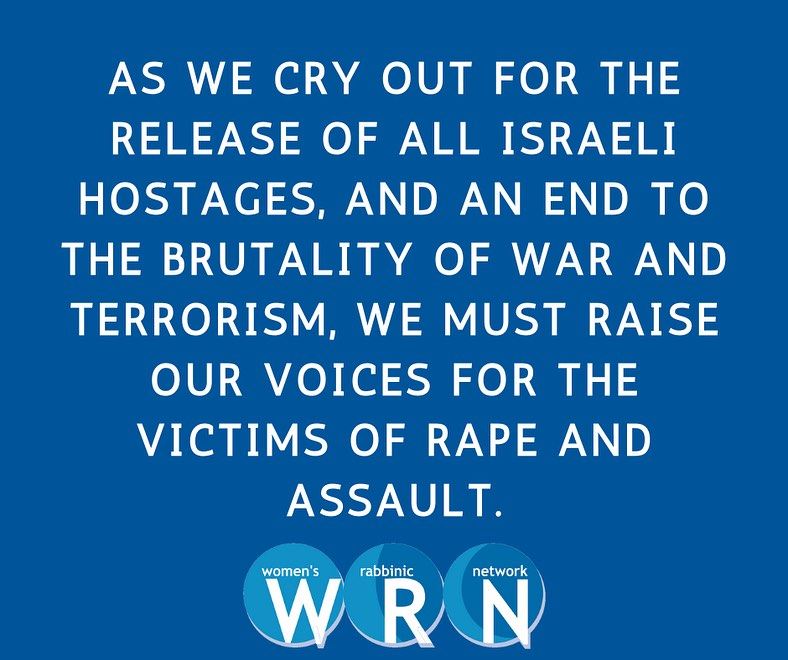
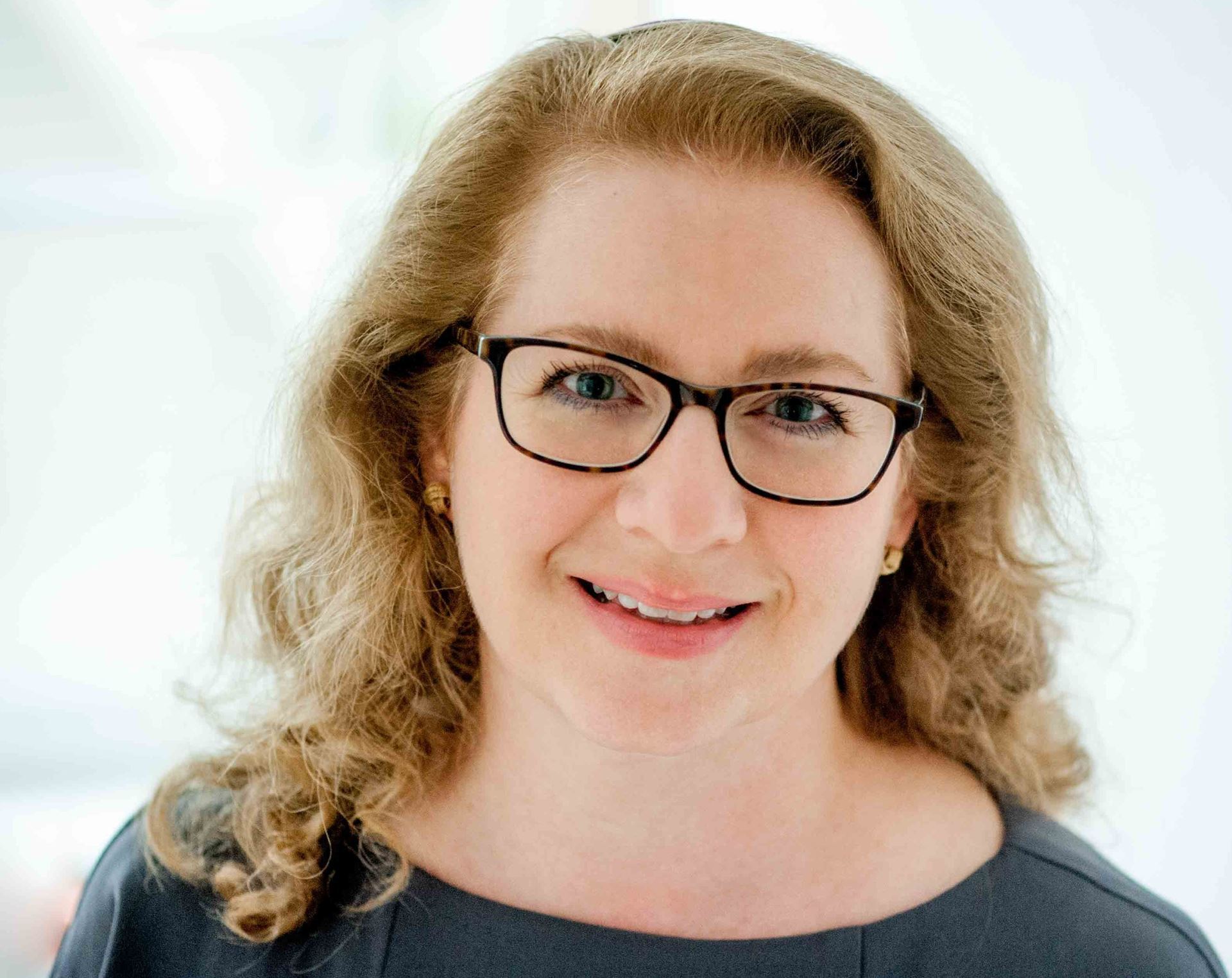
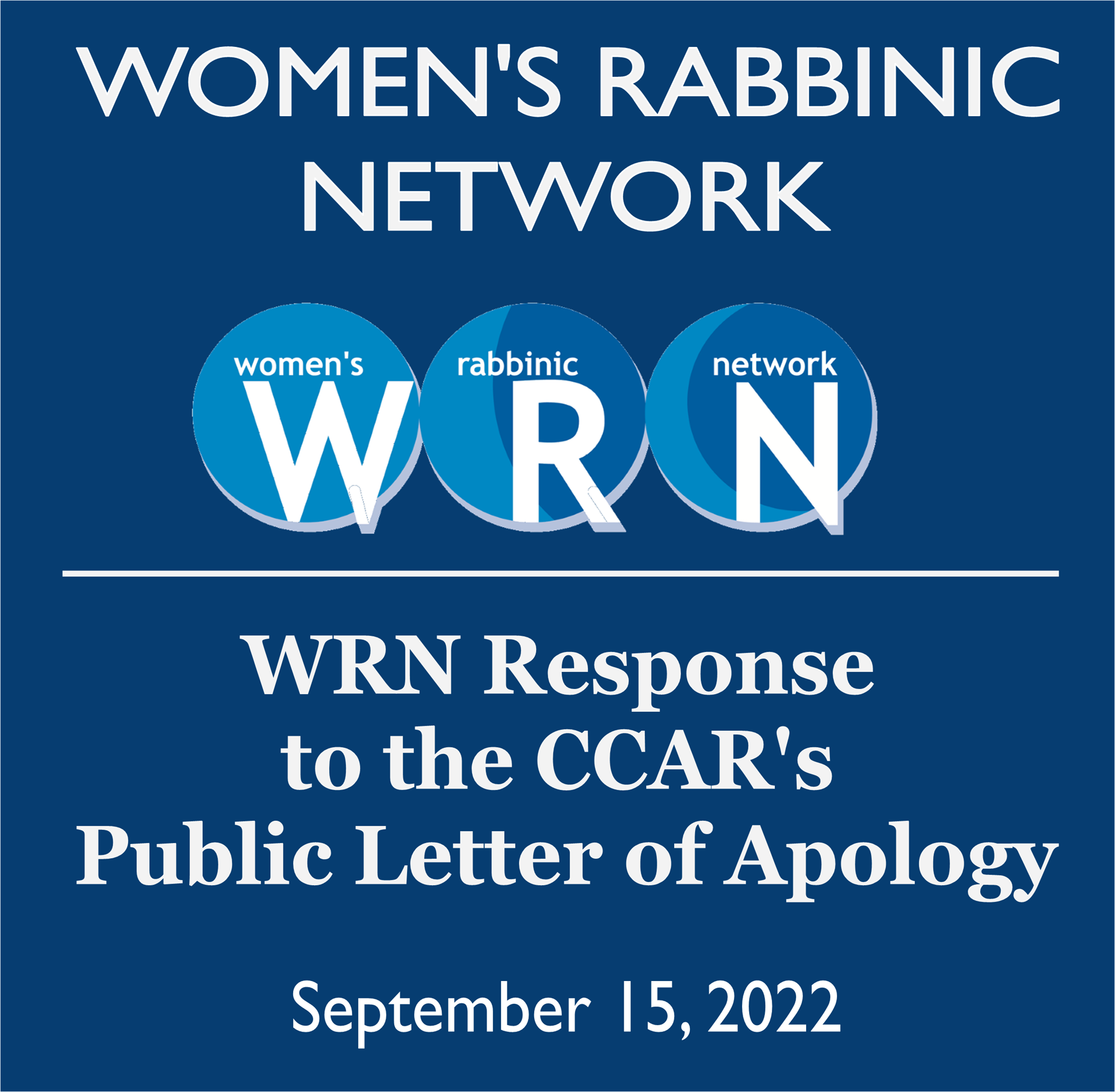

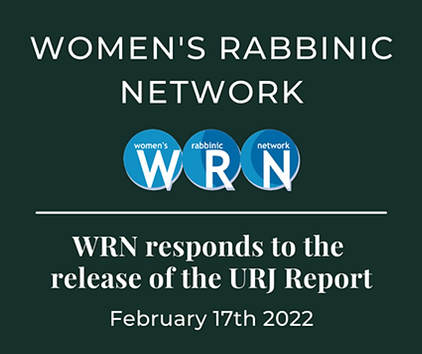
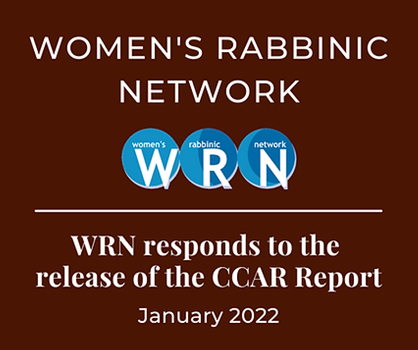
.png)
